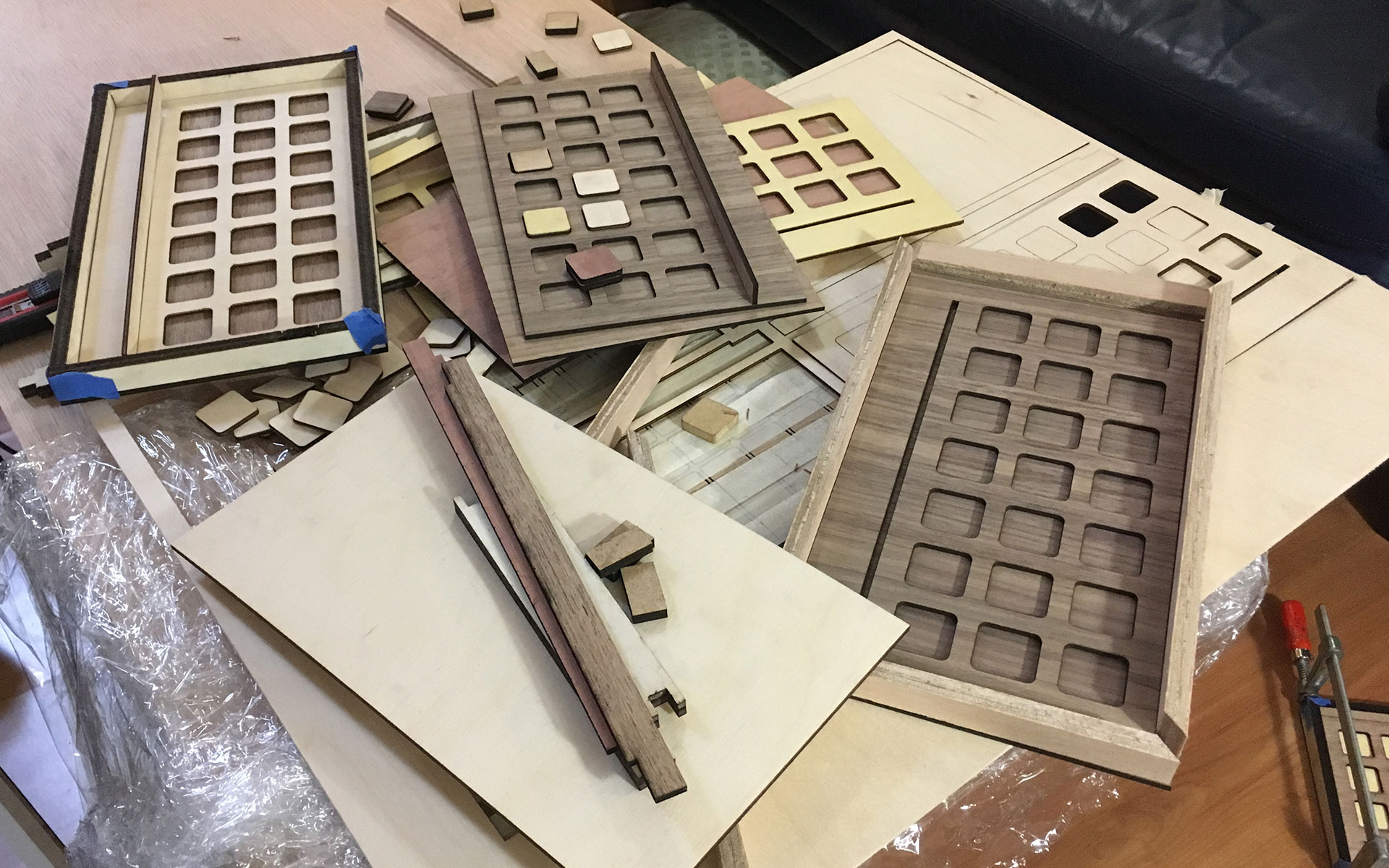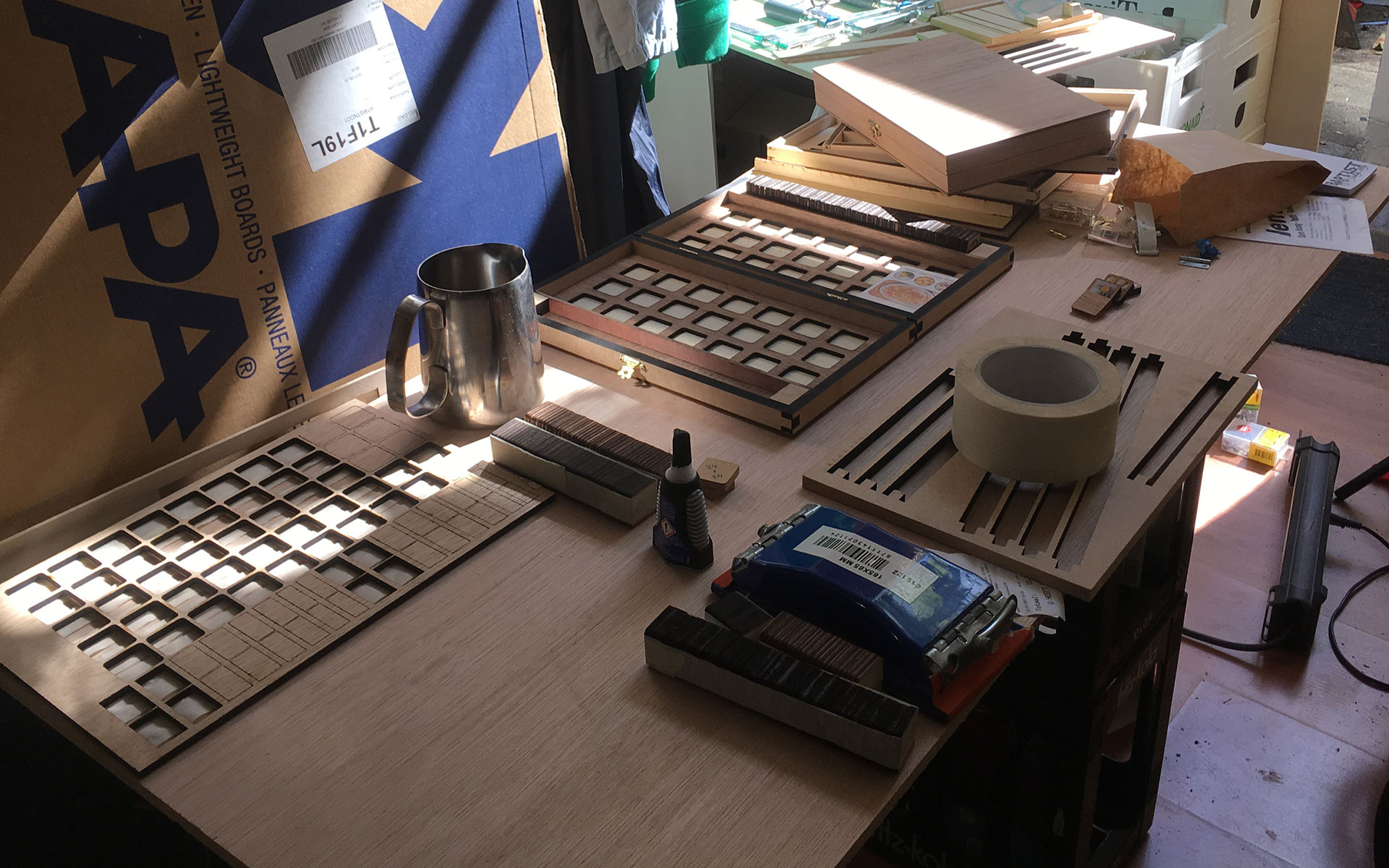The enjoyment of food is a universal cultural practice and a powerful tool for nonverbal understanding. “Food For Thought” is a game created at the height of the European refugee crisis, leveraging the food context to facilitate mutual understanding and combat rising resentments.
FOOD FOR THOUGHT
Fostering mutual understanding through playful interventions
INFO
2016
Year
TU Delft
Institution
Semester Project
Type
Exploring Interactions
Course
Anna Pohlmeyer,
Rudolf Wormgoor
Supervisors
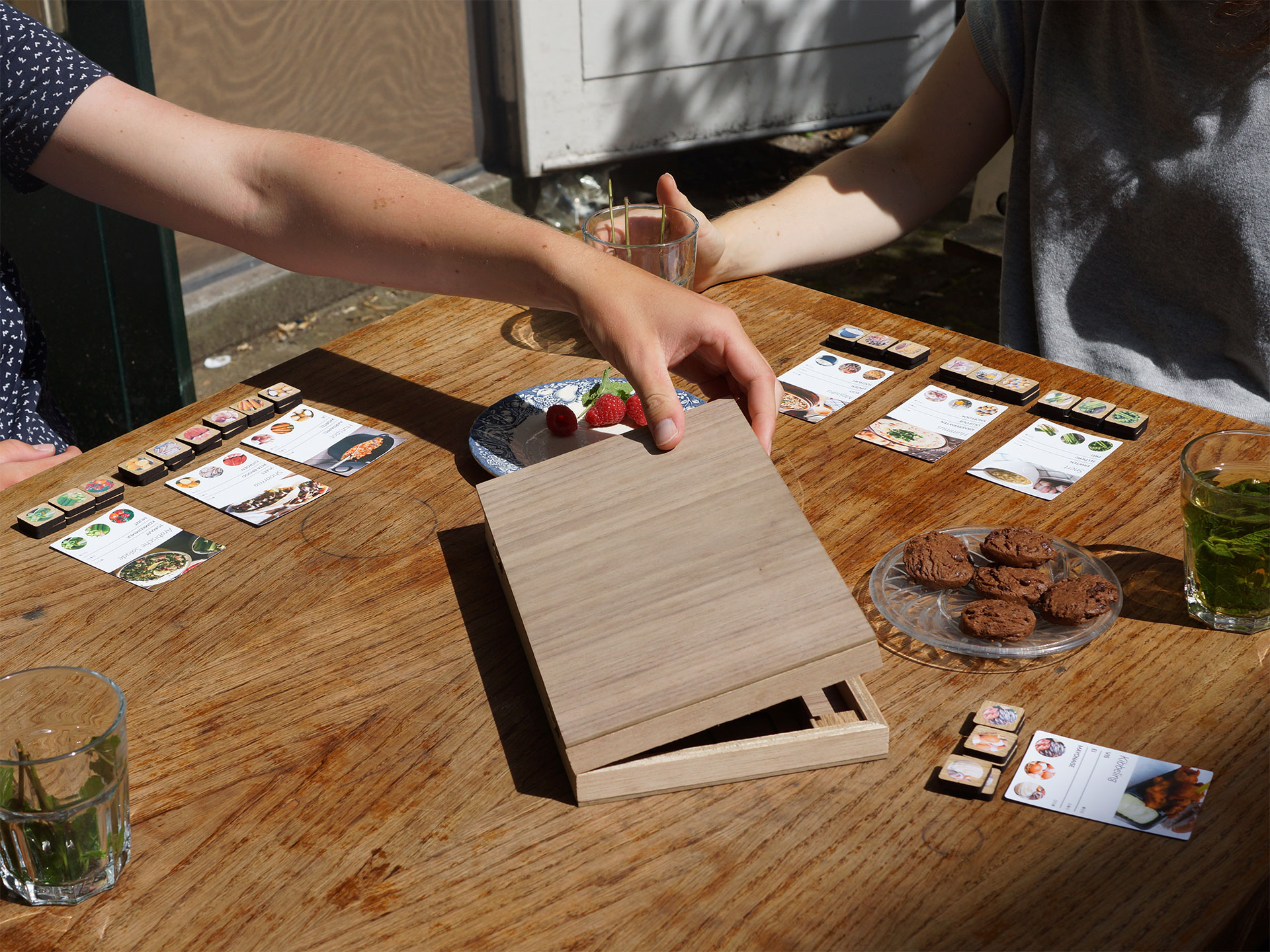
MOTIVATION
The influx of refugees during the European migrant crisis in 2015 polarized society and drew attention to cultural integration issues. But while some people reacted with contempt and rejection, others chose compassion over fear. During that time, many organizations emerged across Europe, working to provide a framework for locals and refugees to reach out and support one another.
I wanted to understand the challenges these organizations and their volunteers face. To that end, I worked with several so-called “buddy programs” across Europe, allowing me to regularly accompany buddy groups (consisting of one local and one migrant) and learn about their needs.
CREATING A PLATFORM
for locals and migrants to exchange cultural knowledge respectfully
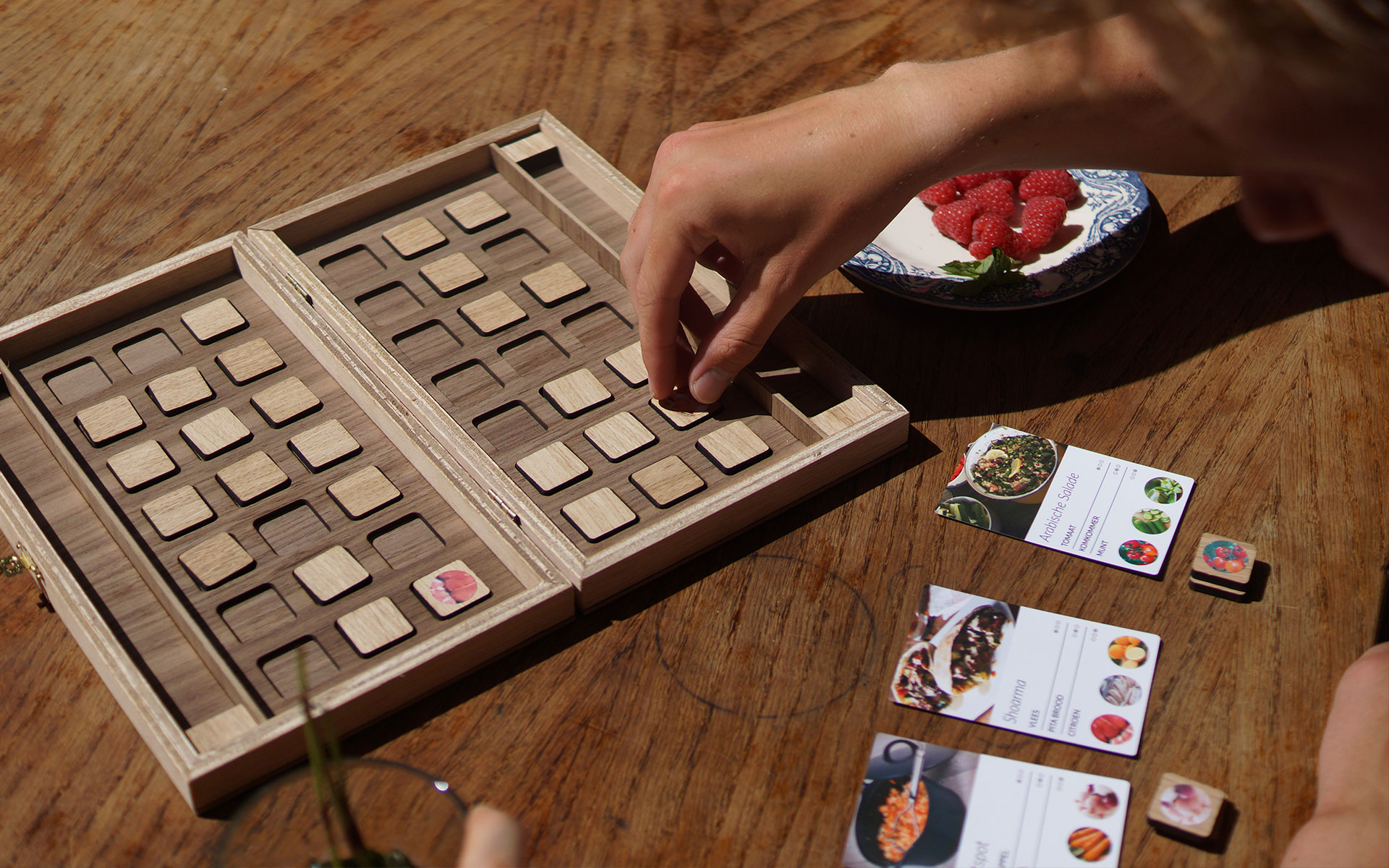
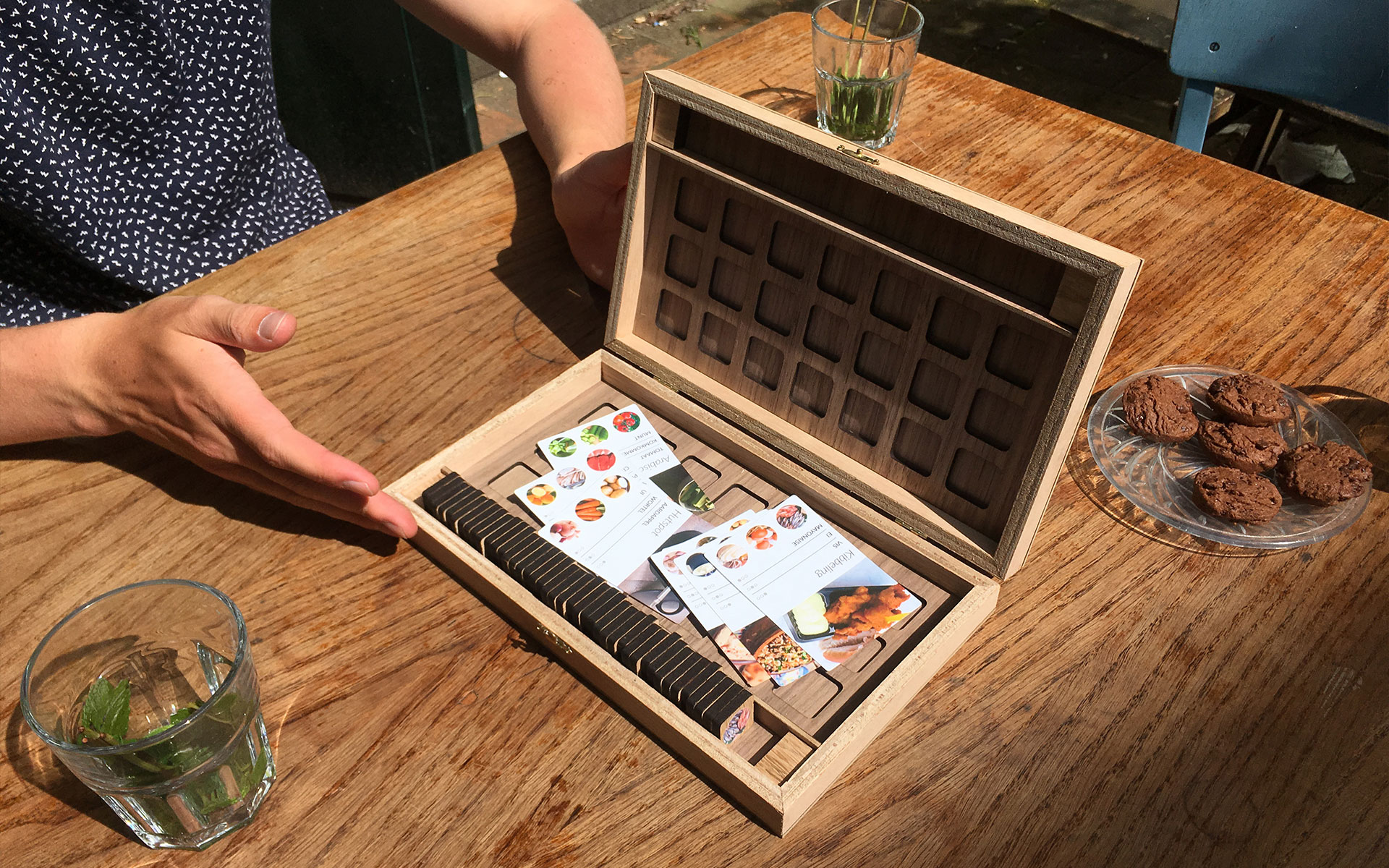
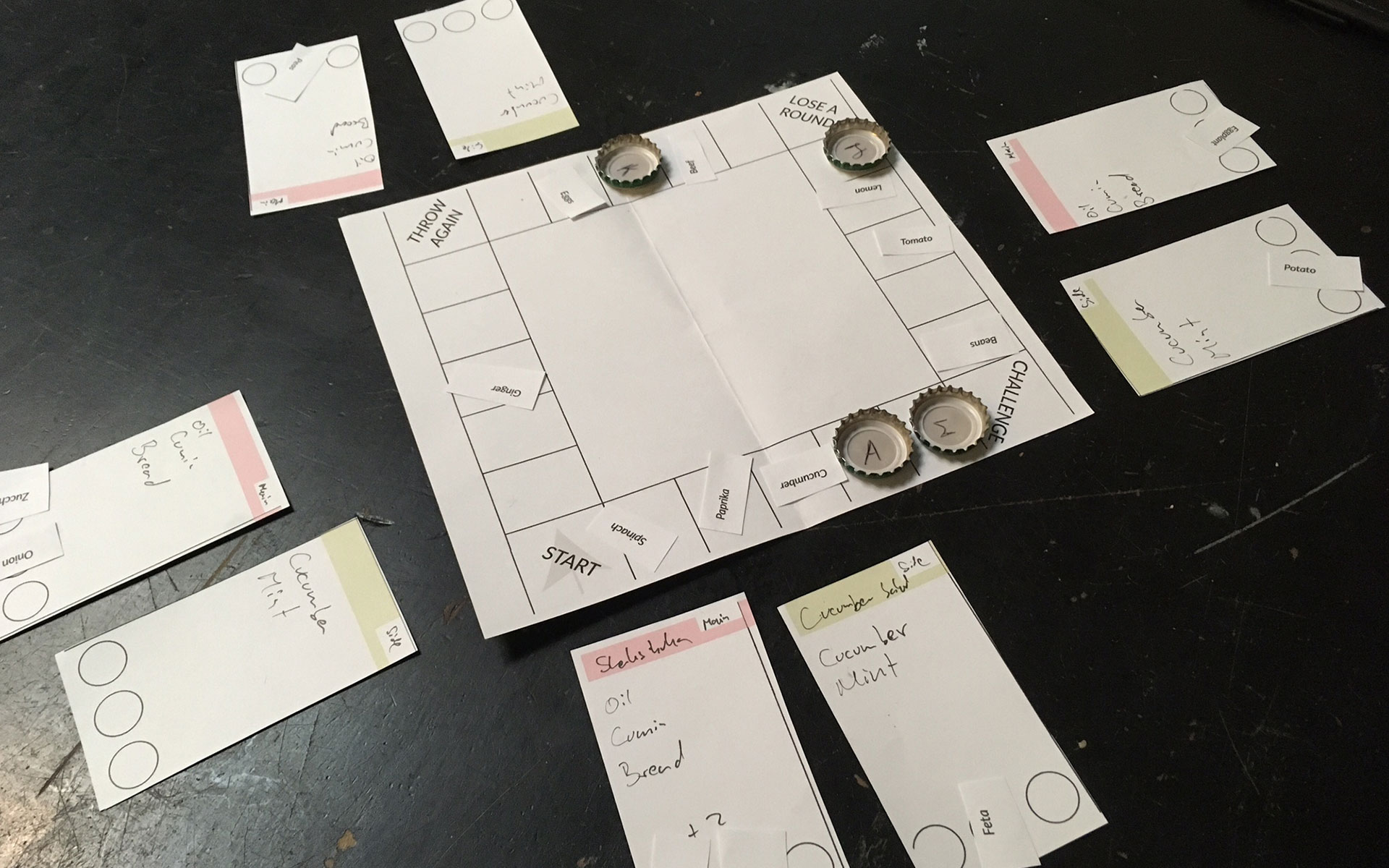
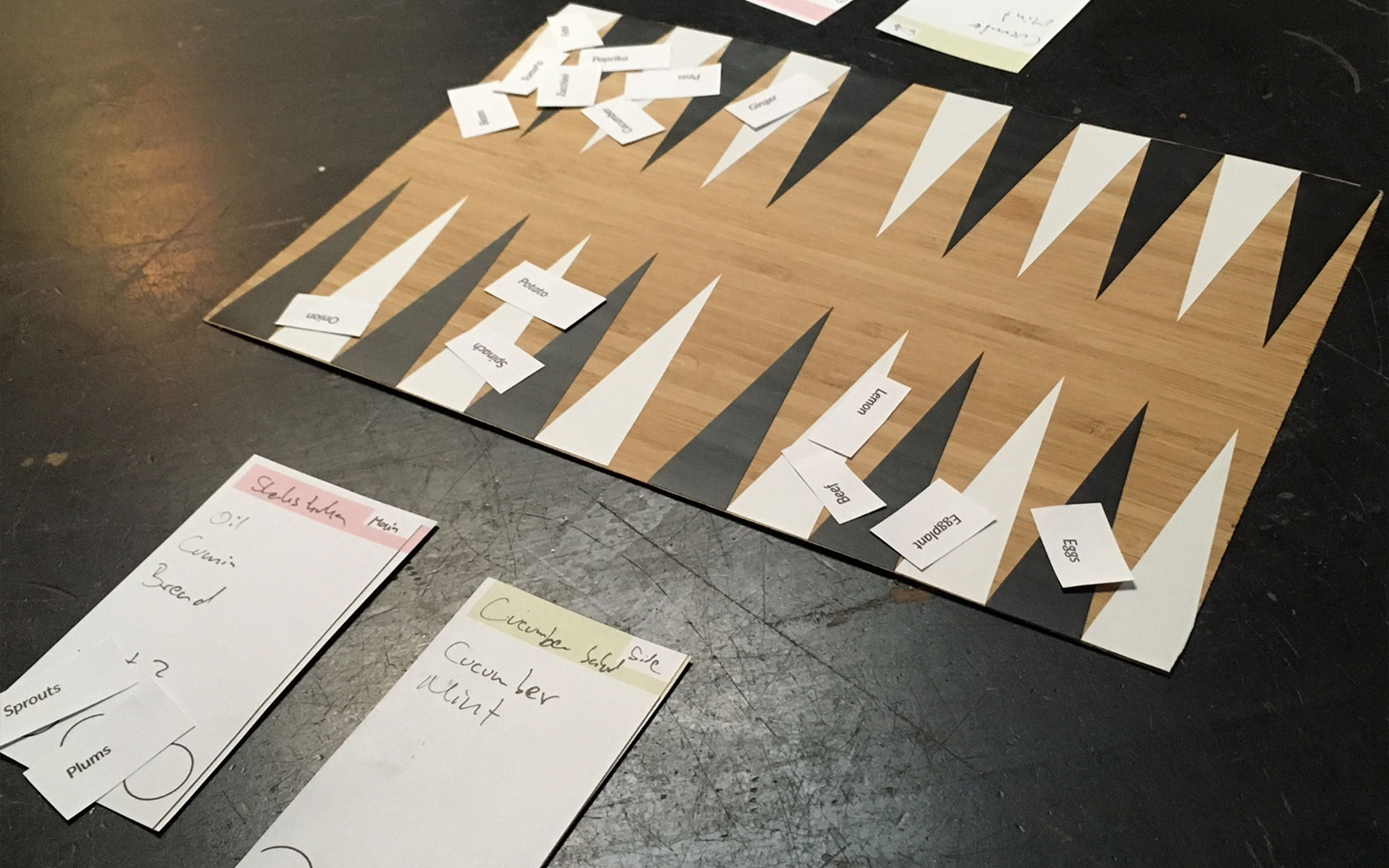
UNDERSTANDING CHALLENGES
that stifle communication in new environments
OBJECTIVES
Differences in cultural backgrounds aside, the most significant issue to overcome was the language barrier. It regularly caused groups to resort to mundane, non-verbal activities, such as playing children’s games. That did little to improve the understanding of language and customs, which most groups identified as their primary objectives.
To address these issues, I set out to create a learning game that draws on the cultural relevance of food to break the ice, provide social momentum, and foster common ground.
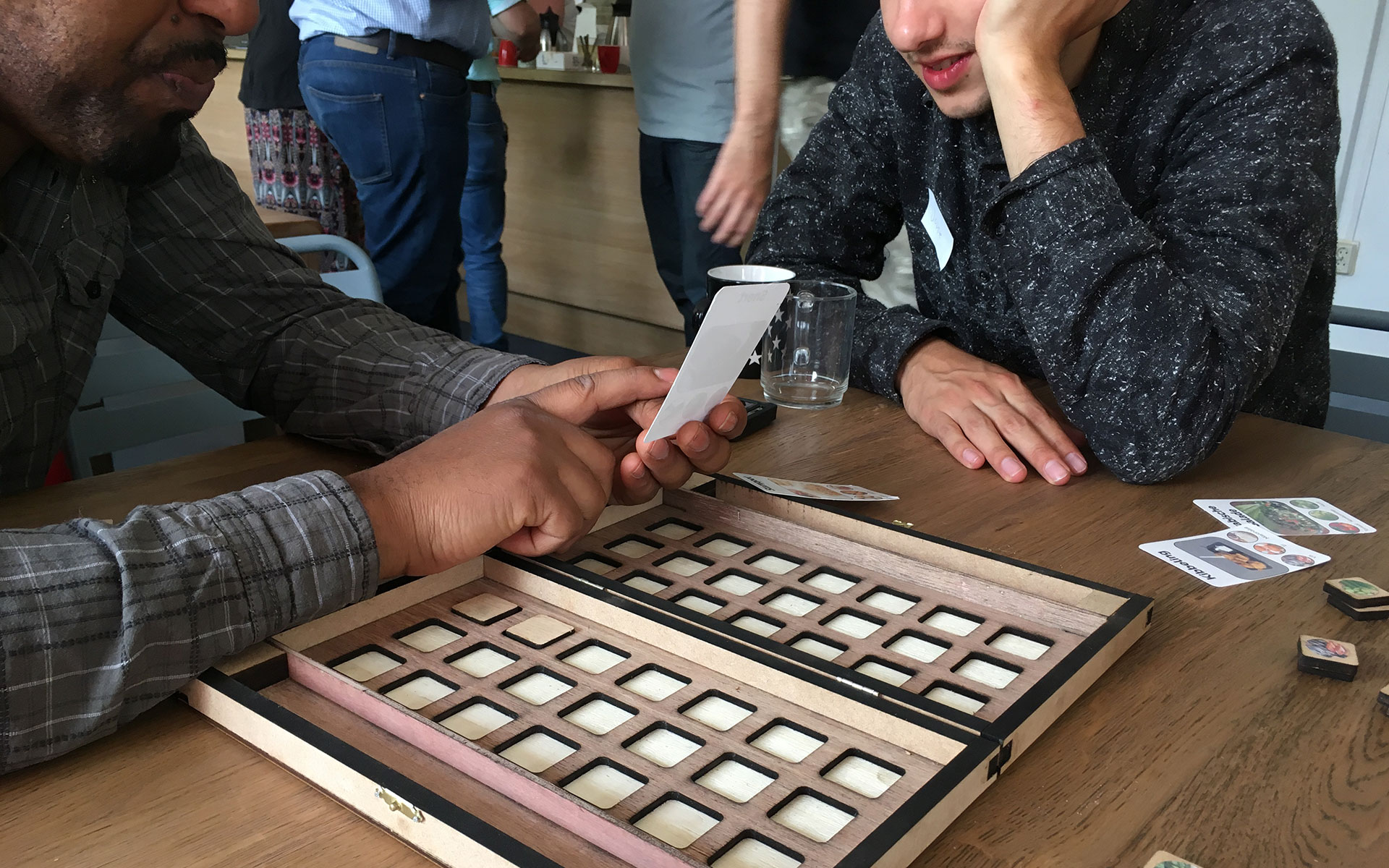
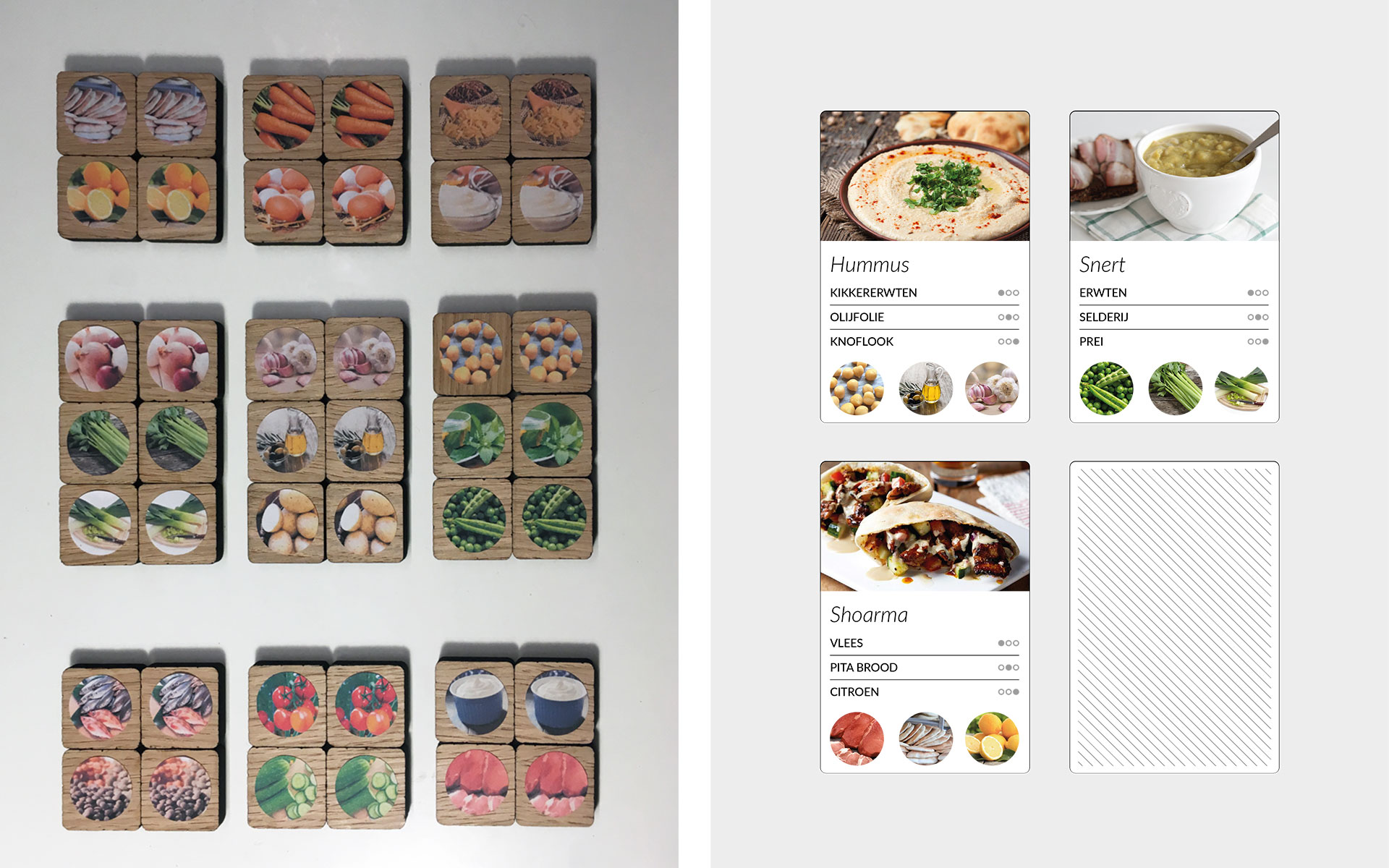
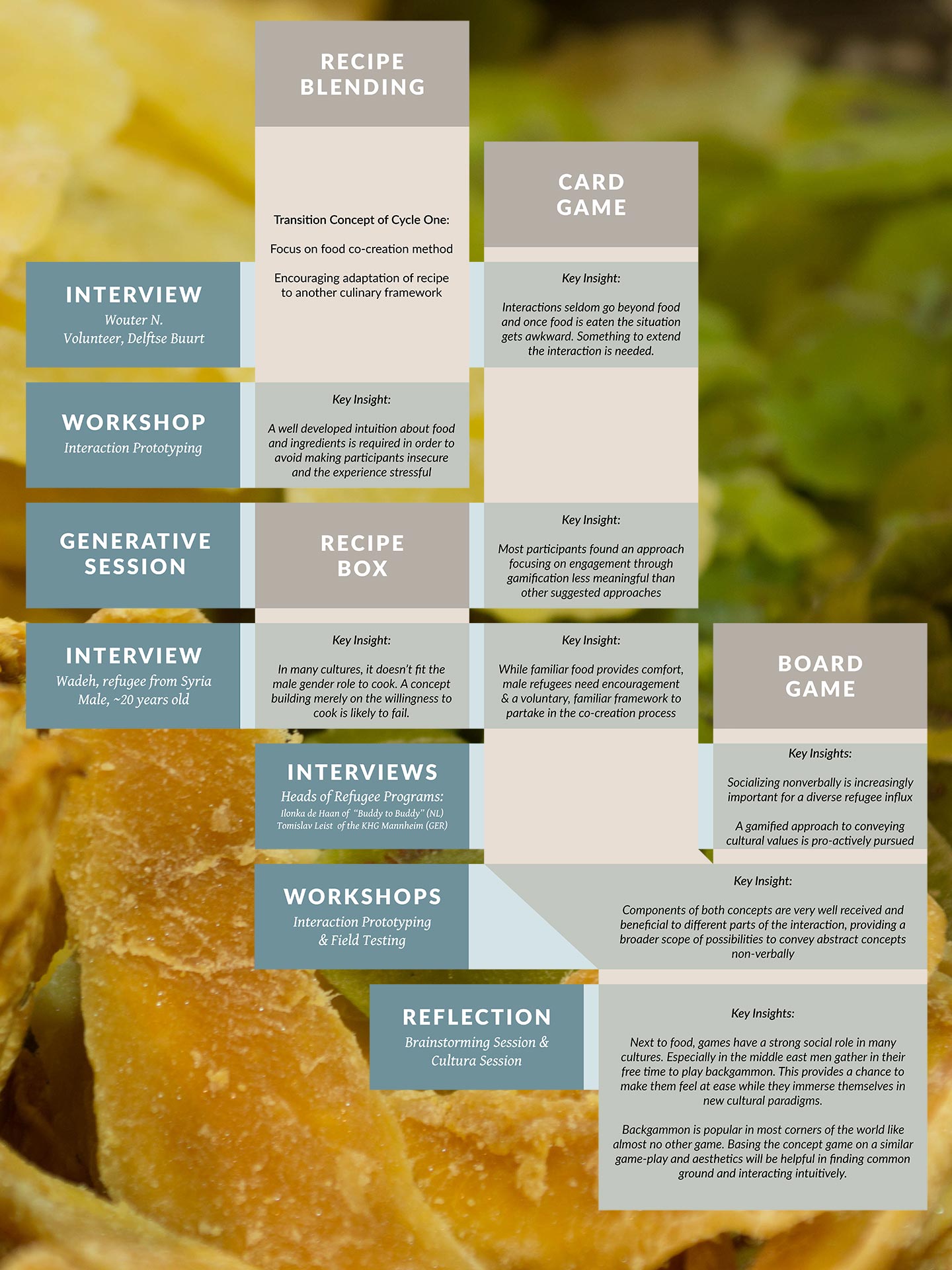
PLAYFUL LEARNING
I explored various concepts to address the issues identified, two of which showed great promise. A board game, similar to Monopoly, facilitated non-verbal cultural learning by competing over what dish to cook after completing the game. A card game based on Quartets Cards supported players in teaching one another basic vocabulary related to everyday situations.
OUTCOME
The final game design combines both these strategies, maintaining their successful elements. It centers around a wooden game board reminiscent of Backgammon boards popular in many cultures. Players can select an accompanying set of cards that provide information on dishes representing their cultures. Buddy groups compete against one another by collecting ingredients needed to complete their recipe cards. They do so by pairing off two identical wooden game pieces without betraying their location to the opposing buddy groups. That way, they learn to develop effective communication strategies for themselves.
CONCLUSIONS
The final game design was successful and proved popular with participating individuals and organizations. The game provides a secure, casual opportunity to start an interaction. At the same time, it acknowledges the desire to engage in activities that deepen the understanding of new cultures. I provided a copy of the game to all organizations that were kind enough to allow me to work with their members.
BUILDING BRIDGES
by establishing common ground
